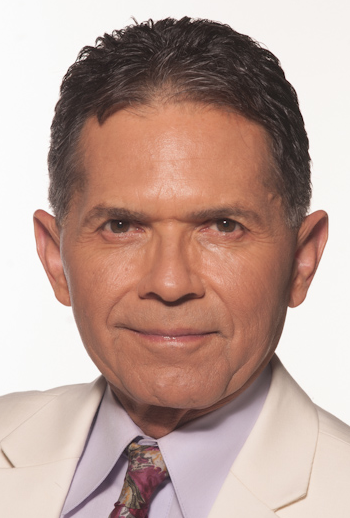Editor’s note: Amigos805 welcomes local guest columns, letters to the editor and other submissions from our readers. All opinions expressed in submitted material are those of the author and do not necessarily represent the viewpoint of Amigos805.
By David Magallanes • Guest contributor

David Magallanes
Suicides in our country are spiraling upward in a diabolically troubling crisis. In 1999, we had 30,000 suicides*. In 2016, there were some 45,000*, a substantial increase. Certainly, chronic depression and other mental health issues are important factors, but the majority of suicides had no diagnosed mental health condition.*
The reasons for suicide are manifold—there is no single motive that pushes individuals over that edge. However, a few singular points emerge as junctures of crisis in people’s lives. Financial, relational and marriage crises are common denominators for suicides, but there are some newer ones that we as a society must deal with. We have more accessibility to guns, less money and more drugs such as the opioids that have inundated us across the land. We are angry or sad or severely stressed (or any combination thereof) and often feel hopeless and helpless. We have veterans returning from war with severe problems. Our social safety net is falling apart.
Men—and particularly Hispanic men—are more prone to suicide than women. Men are taught since childhood to be “tough”, to avoid crying, to just “deal with it.” For Hispanic men, the added layer of cultural shame associated with being perceived as weak or “crazy” prevents them from seeking help with a “loquero”, a common and unfortunate slang term for “psychologist” that might be translated as “doctor who treats crazy people.”
For those of us who are hopelessly optimistic, suicide is difficult to comprehend. We may feel that it’s not anything with which to concern ourselves. But dark thoughts of suicide could well be lurking in the mind of a friend or family member, so it’s incumbent upon us to stay alert for the signs and intervene, even if only to reach out in an attempt to communicate with the possibly distressed individual. We just might thwart a preventable tragedy.
- The Washington Post — Suicide Rates Rise Sharply Across the United States
— David Magallanes is a writer, speaker and professor of mathematics.
***
El Alarmante Aumento de las Tasas de Suicidio
Por David Magallanes • Columnista invitado
Los suicidios en nuestro país están aumentando vertiginosamente en una crisis diabólicamente preocupante. En 1999, tuvimos 30,000 suicidios*. En 2016, hubo alrededor de 45,000*, un aumento sustancial. Por supuesto, la depresión crónica y otras enfermedades mentales son factores importantes, pero la mayoría de los suicidios no tenían una condición de salud mental diagnosticada.*
Las razones para el suicidio son múltiples—no hay un solo motivo que empuje a las personas a dar el brinco final. Sin embargo, algunos puntos singulares emergen como coyunturas de crisis en las vidas de los individuos afectados. Las crisis financieras, relacionales y matrimoniales son denominadores comunes de los suicidios, pero hay algunas más recientes que debemos enfrentar como una sociedad. Tenemos más acceso a las armas de fuego, menos dinero y más drogas, tal como los opioides que nos han inundado a través de nuestra nación. Estamos enojados o tristes o severamente estresados ??(o cualquier combinación de los mismos) y muchas veces nos sentimos desesperanzados e indefensos. Tenemos veteranos que regresan de la guerra con graves problemas. Nuestra red de seguridad social se está desmoronando.
Los hombres—y en particular los hombres hispanos—son más propensos al suicidio que las mujeres. A los hombres se les enseña desde la infancia a ser “machos”, a evitar el llanto, a simplemente lidiar con nuestros disgustos y tristezas. Para los hombres hispanos, la añadida capa de vergüenza cultural asociada con ser percibidos como débiles o “locos” les impide buscar ayuda con un “loquero”, un término coloquial y desafortunado para “psicólogo”.
Para nosotros que seamos desesperadamente optimistas, el suicidio es difícil de comprender. Podemos sentir que no es nada de qué preocuparnos. Pero los pensamientos oscuros de suicidio bien podrían estar acechando en la mente de un amigo o miembro de la familia, por lo que nos corresponde a nosotros estar alertos a los signos e intervenir, aunque solo sea para tratar de comunicarse con la persona posiblemente angustiada. Podríamos frustrar una tragedia prevenible.
- The Washington Post — Suicide Rates Rise Sharply Across the United States
— David Magallanes es un escritor, orador y profesor de matemáticas.
Editor’s note: Amigos805 welcomes comments on stories appearing in Amigos805 and on issues impacting the community. Comments must relate directly to stories published in Amigos805, no spam please. We reserve the right to remove or edit comments. Full name, city required. Contact information (telephone, email) will not be published. Please send your comments directly to frank@amigos805.com
